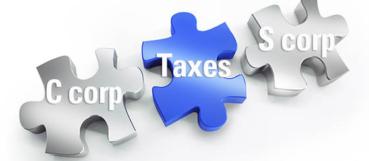UPDATE: Recent Tax Legislature Changes in response to COVID-19
Tax Filings
Tax forms and payments won’t be due to the Internal Revenue Service until July 15 this year, Treasury Secretary Steven Mnuchin said in a tweet. Any business or taxpayer that owes less than $1 million can delay payment of their balance due until July 15, 2020. This also applies to estimated tax payments that would have been due April 15th, they can now be made as late as July 15th. Currently the second quarter estimates are due 6/15 (before the first quarter is due).There will be no accumulation of interest on the amounts due during this 90 day extension, however any underpayment or failure to file penalties would still be in effect. The State of Maryland has adopted the same 90 day extension of tax filing, payments and estimates.
The State of Maryland enacted additional measures to provide an extended June 1st filing deadline that applies to certain business returns with due dates during the months of March, April and May 2020 for businesses filing sales and use tax, withholding tax, and admissions & amusement tax, as well as alcohol, tobacco and motor fuel excise taxes, tire recycling fee and bay restoration fee returns. At this time we still have not heard confirmation if the Personal Property / Annual Report filing deadline of April 15th will be extended.
If you are expecting a refund, we still encourage you to get your taxes filed by April 15th!
Read more about the extension here.
Sick Pay
On March 18th, the Families First Coronavirus Response Act was signed into law which will become effective April 2, 2020. The law provides for two notable paid leave requirements for employers with fewer than 500 employees.
Emergency Paid Sick Leave (“EPSL”). Private employers with fewer than 500 employees and all public employers must provide up to 80 hours of paid leave to all full-time employees who need to miss work and are unable to telework because of illness or quarantine, or to care for family members who are ill, quarantined or have children under the age of 18 without school or child care because of the COVID-19. Part-time employees are also entitled to two weeks pro rata paid leave. This mandatory paid leave is in addition to any other paid leave already provided to such employees and is capped at a maximum of $511/day where the employee him or herself is ill or quarantined and $200/day if the leave is necessary to care for a family member.
Expanded Family Medical Leave (“FMLA”). Covered employers with fewer than 500 employees will be required to provide paid FMLA leave to employees who have been employed for at least 30 days and are unable to work or telework because they are needed to care for a child under the age of 18 due to school closures or childcare unavailability resulting from the COVID-19 pandemic. The first 10 days of this FMLA may be unpaid but thereafter, the leave must be paid at a rate of two-thirds of the employee’s regular rate of pay, capped at $200 per day or $10,000 total per employee.
Please note that the new law does not require employers pay workers sick leave for employees who are off work just because of an office closure.
Tax Credits
The FFCRA legislation provides that employers who are required to provide their employees with EPSL and/or public health emergency FMLA may apply for and receive certain tax credits for those payments. Employers may receive a tax credit of up to 100% of the amount of EPSLA paid to employees, up to a maximum of $511/day in the case of the employee’s own illness or $200/day if the employee is receiving leave to care for a family member. The tax credit is provided against the employer’s portion of Social Security taxes. These credits can be applied quarterly. In addition, employers may receive a tax credit for the pay they are required to provide employees for public health emergency FMLA. This credit is also provided against the employer’s portion of Social Security taxes, but it is capped at $200 per day and $10,000 for all calendar quarters. If the credit exceeds the employer’s total liability for all employees for any calendar quarter, the excess credit is refundable to the employer. Self-employed individuals may also be eligible for these tax credits.
To read more in depth coverage of these changes please read more here.
We understand that this short recap of these major changes leaves many of your questions unanswered and we encourage you to reach out and contact us to discuss further. We understand these are critical times where a lot of heavy business decisions will need to be made, we are here to support and educate you to make the best decisions for yourself and/or your business.





